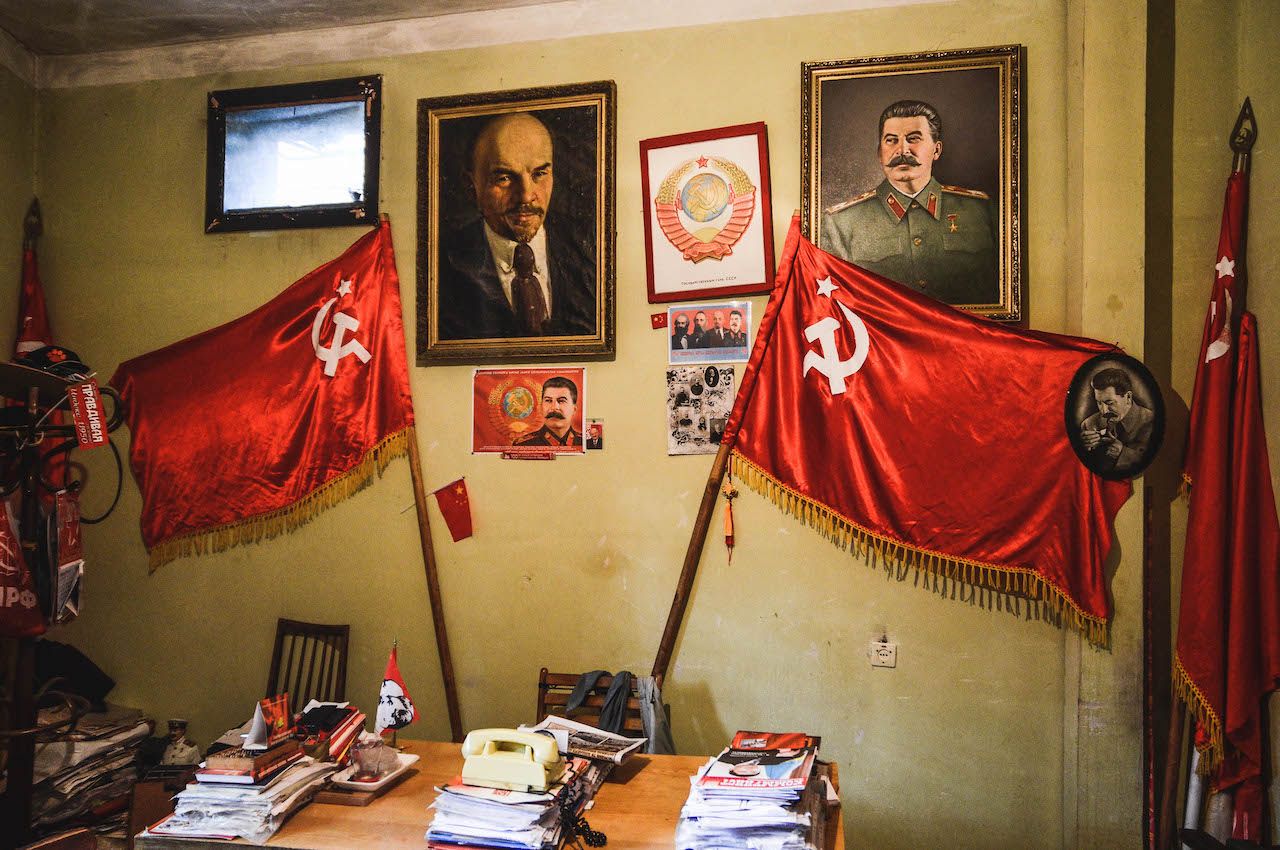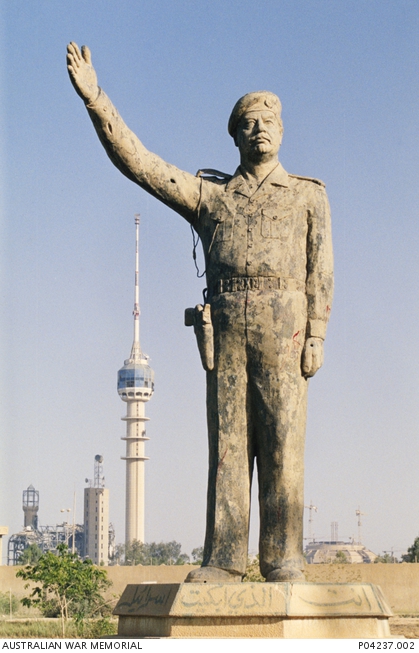4.4 — The Selectorate Model
ECON 317 • Economic Development • Fall 2021
Ryan Safner
Assistant Professor of Economics
safner@hood.edu
ryansafner/devF21
devF21.classes.ryansafner.com
Selectorate Model
Autocracy
Autocracy is an all-encompassing term for any non-democratic/constitutional republic political system
Autocrats might be (hereditary) monarchs, dictators, emperor/ess, military junta, oligarchy

Political Incentives
Every leader's goal is to attain and maintain political power (get and stay in office)
If all leaders have the same goals, why is there so much variation in outcomes?
- Some societies' leaders enact policies that benefit society
- Some societies' leaders enact policies that benefit only themselves
The variation around the world is in the institutions regarding how the leader is selected

Selectorate Model I

Selectorate theory: characterizes governments by their selection institutions
Goal for the leader is political survival
Political survival can be threatened in three distinct ways: These include domestic challenges to leadership, revolutionary challenges to individual leaders and the political systems they lead, and external threats in the form of military attack by foreign adversaries...the basic tools to cope with each of these challenges are, we believe, the same, but the strategic responses by leaders (and followers) differ depending on the source of the threat," (p.23).
Bueno de Mesquita, Bruce, Alastair Smith, Randolph Siverson, and James Morrow, 2006, The Logic of Political Survival
Selectorate Model I

- All societies contain three nested groups:
Residents \((N)\)
Selectorate \((S)\): subset of residents who can potentially select the Leader
Winning Coalition* \((W)\): subset of selectorate whose active support is required* for the Leader to maintain political power
Leadership \((L)\): person(s) constituting the administration
Each person in the selectorate has a small chance of being in the winning coalition
Residents not in Selectorate are disenfranchised
Selectorate Model II


Each society has a Leader and a set of potential substitute leader(s), the Challenger \((C)\)
Winning Coalition controls the resources necessary for Leader to stay in power
If enough members of the winning coalition defect and support a Challenger, the incumbent Leader loses power
Selectorate Model III

Leadership chooses a tax rate \((\tau)\) on labor to generate revenue
Spends that revenue on a combination of:
Private Goods (rents) given exclusively to members of the winning coalition \((W)\)
- money, tax breaks, management of state-owned enterprises, political positions, prestige
Public Goods made available for all Residents
- roads, healthcare, education, parks, defense, courts, etc.
Selectorate Model IV


Challenger (C) makes an offer (tax rate, private goods, public goods)
Whomever makes a better offer to the Selectorate is selected as Leader
Leader (L) must keep enough coalition members happy to avoid them defecting
Challenger Often Comes from Winning Coalition

Praetorian guards offering Claudius the Roman Empire in A.D. 41 after they assassinated Caligula, his nephew
Challengers often come from within the “inner circle” or the winning coalition (the Politburo, the junta, )
In the best position to benefit from power, and most plausible to convince new members to defect and join new government
13 known cases of Praetorian Guard assassinations of Roman Emperors
Challenger's Commitment Problem

At first glance, \(C\) just has to make a better offer than \(L\)
- Provide more private goods to \(W\) than the Leader!
But challenger faces a commitment problem
- Current \(W\) members obtain private rents because they are in \(W\)
- If \(C\) comes to power, members of \(W\) continue to earn rents only if they are still in \(W\) under \(C\)'s leadership!
- \(C\) can promise a member \(W_i\) that they will be in the new \(W\) under \(C\), but this promise is not credible!
Leader Doesn't Have this Problem

Why doesn't \(L\) face the same commitment problem?
Current \(W\) members recognize they keep getting rents only so long as they remain loyal to \(L\)
Winning coalitions are stable over time because \(W_i\) members have greater confidence that they will be in \(W\) and earn rents into the future under \(L\), unlike the uncertainty with \(C\)
To Defect or Not to Defect?

So \(L\) and \(C\) make competing offers to members of \(W\), and \(W\) chooses the candidate with the best (in expected value terms) offer
Choice to defect for \(W_i\) depends on two key factors:
The size of the winning coalition, \(W\)
The loyalty norm, \(\frac{W}{S}\)
The Loyalty Norm I

The probability of being in a leader's winning coalition is \(\frac{W}{S}\)
Intuition: if enough members of \(W\) defect and \(C\) wins, forms a new regime
- Draws \(W \in S\) selectorate to form new coalition
- Since \(W<S\), defectors (currently in \(W)\) can’t be certain they’ll be in new \(W\)
- many inessential defectors won’t be part of new regime
The Loyalty Norm II

So a potential defector in \(W\) faces a tradeoff:
- (Expected) marginal benefit of defecting: being in \(W\) under \(C\)
- (Expected) marginal cost of defecting: in \(W\) now under \(L\), but not being in \(W\) under \(C\)
As \(W \uparrow\) or \(\downarrow S\), \(C\) is less likely to need any particular member \(W_i\) (and less likely to include them in new regime)
- Defecting becomes riskier†
Risk of not being in \(W\) is \((1-\frac{W}{S})\)
† Not to mention, if the coup fails, or your defection is discovered beforehand, Leaders are often unkind to traitors!
The Loyalty Norm: Example

In these circumstances [after the rebellion on An Lu-Shan from 756 to 763 AD] the emperors could look for loyal service to one source and one alone - their eunuchs. For eunuchs were absolutely and unconditionally loyal to the emperors. This indeed is true, not only for the Chinese Empire, but for all the others that used the services of eunuchs - Persia, late Rome, Byzantium. Eunuchs had neither lands nor fortunes nor families to fall back upon. To the generals they were half-men, to the mandarines guttersnipes with neither the breeding nor the education of a gentleman. The Emperor, therefore was their sole support and they lived or died, rose or fell, entirely by his favor," (pp. 66-67).
Bueno de Mesquita, Bruce, Alastair Smith, Randolph Siverson, and James Morrow, 2006, The Logic of Political Survival
The Loyalty Norm: Comparisons
Generates a loyalty norm
When \(\frac{W}{S}\) is small, members of \(W\) are extremely loyal to the Leader (lower chance of being in challenger’s \(W)\)
- cult of personality
- one-party dictatorships
When \(\frac{W}{S}\) is large, members of \(W\) are less loyal (better chance of being in challenger’s \(W)\)
- democracy
- monarchy
- military junta

The Loyalty Norm: Visual Comparisons

The Loyalty Norm: Hypothetical Example I
- The size of the loyalty norm affects performance of leaders
The Loyalty Norm: Hypothetical Example I
- The size of the loyalty norm affects performance of leaders
Society A
Tax revenue: $1 billion
Winning Coalition: 1,000
Selectorate: 100,000
Loyalty norm: \(\frac{W}{S} = 0.01\) (prob. of being in \(C\)'s \(W)\)
The Loyalty Norm: Hypothetical Example I
- The size of the loyalty norm affects performance of leaders
Society A
Tax revenue: $1 billion
Winning Coalition: 1,000
Selectorate: 100,000
Loyalty norm: \(\frac{W}{S} = 0.01\) (prob. of being in \(C\)'s \(W)\)
Society B
Tax revenue: $1 billion
Winning Coalition: 1,000
Selectorate: 10,000
Loyalty norm: \(\frac{W}{S} = 0.10\) (prob. of being in \(C\)'s \(W)\)
The Loyalty Norm: Hypothetical Example I
- The size of the loyalty norm affects performance of leaders
Society A
Tax revenue: $1 billion
Winning Coalition: 1,000
Selectorate: 100,000
Loyalty norm: \(\frac{W}{S} = 0.01\) (prob. of being in \(C\)'s \(W)\)
Society B
Tax revenue: $1 billion
Winning Coalition: 1,000
Selectorate: 10,000
Loyalty norm: \(\frac{W}{S} = 0.10\) (prob. of being in \(C\)'s \(W)\)
- Leaders of both socities could give $1 million to each member of \(W\)
The Loyalty Norm: Hypothetical Example II
Society A
- Probability of being in challenger's coalition is \(\frac{W}{S}=0.01\)
$$E[Defect]= 0.01(\$1,000,000)+0.99($0)=\$10,000$$
Leader could give $1,000,000 to each coalition member to ensure loyalty...
... but only needs to give coalition members more than $10,000 to stop them from defecting

The Loyalty Norm: Hypothetical Example III

Society B
- Probability of being in challenger's coalition is \(\frac{W}{S}=0.10\)
$$E[(Defect)]= 0.10(\$1,000,000)+0.90($0)=\$100,000$$
Leader could give $1,000,000 to each coalition member to ensure loyalty...
... but only needs to give coalition members more than $100,000 to stop them from defecting
Loyalty Norm: Small W/S Societies
Leaders in small \(\frac{W}{S}\) societies with strong loyalty norms (Society A) need to spend less on private goods to keep \(W_i\) members loyal
Marginal benefit of defection is smaller
The price of loyalty is “cheap” (since \(W_i\) members are very loyal)
Leader of Society A must spend $10,000 on each W member vs. $100,000 in Society B

Loyalty Norm: Small W/S Societies: Example I

GDP is about $12 billion
20,000,000 population \((R)\)
GDP/capita in North Korea: $600
Estimated that Kim Jong Un needs to keep between 250-2,500 generals happy to stay in power, \(W\)
Estimated that Kim needs to spend $1.2 billion per year (10% of GDP) to stay in office (and keep those 2,500 people happy)
- About $500,000 per person, but most don't get this much (maybe $6,000)
Loyalty Norm: Small W/S Societies: Example II

Private rents are still \(>10x\) greater than the per capita income!
Winning coalition members are fiercely loyal to the regime and want to protect their enormous rents
Loyalty Norm: Small W/S Societies: Leader Discretion
In high loyalty (small \(\frac{W}{S})\) societies, leaders need to spend less to keep \(W\) happy, meaning more tax revenue leftover for discretionary spending by the leader
Outcomes vary entirely based on the leader's personality
Leader Discretion I

Mao Zedong
1893-1976
China
- Mao's "Great Leap Forward" is estimated to have killed somewhere between 20-46 million people
Leader Discretion II

Lee Kwan Yew
1923-2015
Singapore
"Lee is recognised as the nation's founding father, with the country described as transitioning from the "third world country to first world country in a single generation" under his leadership."
Leader Discretion III

- Discretion also creates possibility of kleptocracy - not mere corruption (buying off members of coalition for support), but outright theft of state resources
The Haul of Fame I

Mobutu Sese Seko
1930-1997
Zaire/DRC
According to Mobutu's New York Times obituary: "He built his political longevity on three pillars: violence, cunning and the use of state funds to buy off enemies. His systematic looting of the national treasury and major industries gave birth to the term 'kleptocracy' to describe a reign of official corruption that reputedly made him one of the world’s wealthiest heads of state."
Mobutu was infamous for embezzling the equivalent of billions of US dollars from his country. According to the most conservative estimates, he stole US$4–5 billion from his country, and some sources put the figure as high as US$15 billion.
The Haul of Fame II

Ferdinand Marcos
1917-1989
Phillipines
[M]onopolies in several vital industries were created and placed under the control of Marcos cronies, such as the coconut industries...tobacco industry...banana industry...sugar industry...and manufacturing....The Marcos and Romualdez families became owners, directly or indirectly, of the nation's largest corporations, such as the Philippine Long Distance Company (PLDC)...Philippine Airlines (PAL), Meralco (an electric company), Fortune Tobacco, numerous newspapers, radio and TV broadcasting companies (such as ABS-CBN), several banks (most notably the Philippine Commercial and Industrial Bank...
According to Presidential Commission on Good Government, the Marcos family and their cronies looted so much wealth from the Philippines that, to this day, investigators have difficulty determining precisely how many billions of dollars were stolen. The agency claimed that Marcos stole around $5 to $10 billion from the Philippine treasury. Adjusted for inflation, this would be equivalent to about US$11.16 to US$22.3 billion...in 2017.
The Haul of Fame III

Suharto
1921-2008
Indonesia
In the early 1980s, Suharto's children, particularly Siti Hardiyanti Rukmana ("Tutut"), Hutomo Mandala Putra ("Tommy"), and Bambang Trihatmodjo...were given lucrative government contracts and protected from market competition by monopolies. Examples include the toll-expressway market which was monopolised by Tutut, the national car project monopolised by Bambang and Tommy, and even the cinema market, monopolised by 21 Cineplex (owned by Suharto's cousin Sudwikatmono). The family is said to control about 36,000 sq. km of real estate in Indonesia, including 100,000 sq. m of prime office space in Jakarta and nearly 40% of the land in East Timor.
In early 2004, the German anti-corruption NGO Transparency International released a list of what it believed to be the ten most self-enriching leaders in the previous two decades; in order of amount allegedly stolen in USD, the highest-ranking of these was Suharto and his family who are alleged to have embezzled $15 billion – $35 billion.
Loyalty Norm

Leaders \((L)\) prefer to buy the support of the winning coalition with private goods (rents)
- cheaper
Challengers \((C)\) cannot credibly promise defecting members of \(W\) private goods
Size of the Winning Coalition, W I
- As the size of the winning coalition \(W\) increases, value of private goods (rents) to each member \(W_i\) decreases
Size of the Winning Coalition, W I
- As the size of the winning coalition \(W\) increases, value of private goods (rents) to each member \(W_i\) decreases
Society A
Tax revenue: $1 billion
Winning Coalition: 1,000
Max value of private goods: $1,000,000
Size of the Winning Coalition, W I
- As the size of the winning coalition \(W\) increases, value of private goods (rents) to each member \(W_i\) decreases
Society A
Tax revenue: $1 billion
Winning Coalition: 1,000
Max value of private goods: $1,000,000
Society C
Tax revenue: $1 billion
Winning Coalition: 1,000,000
Max value of private goods: $1,000
Size of the Winning Coalition, W II
At some point, it becomes more efficient for the Leader to buy support of coalition \(W\) with more public goods than private goods
Leaders in small \(W\) systems provide private goods
Leaders in large \(W\) systems provide public goods
- Would have to spend more overall to buy loyalty with private goods!
As the winning coalition gets larger, leaders provide more public goods

Size of the Winning Coalition, W III

Alexis de Tocqueville
1805-1809
"In aristocracies those who wish to get to the head of affairs have great wealth at their disposal, and as the number of those by whose assistance they rise is comparatively small, the government is in a sense up for auction. In democracies those who intrigue for power are hardly ever rich, and the number of those who help to give it to them is very great. Perhaps there are just as many men for sale in democracies, but there are hardly any buyers; besides, one would have to buy too many men at the same time to obtain one's end."
de Tocqueville, Alexis, (1835-1840), Democracy in America
Institutions Matter, Intentions of Leaders Don't
Civic-minded leaders confronted with small \(W\), small \(\frac{W}{S}\) system will produce poor policies to stay in power
- more public goods and fewer private goods risk being replaced by challenger
Selfish leaders confronted with large \(W\), large \(\frac{W}{S}\) will produce good policies to stay in power
- fewer public goods and more private goods risk being replaced by challenger

Institutions Matter, Intentions of Leaders Don't II

Preferences of Groups
\(L\): Leaders like to set up political systems with small W and small W/S.
\(W\): Members of the winning coalition like to set up political systems with small W and large W/S
\(S\): Members of the selectorate and disenfranchised like to set up political systems with large W and large W/S.

Selectorates and Performance I

Selectorates and Performance II

Selectorates and Performance III

Leadership Turnover and Succession I
In autocracies, new autocrats need to establish their patronage network and convince \(W\) that they will deliver the private rents
- High risk of challengers overthrowing early in regime
If leader survives for first 1-2 years in office, very high probability leader will continue until they die in their sleep
- Until/unless it's learned that ruler has a terminal disease

Leadership Turnover and Succession II

Leadership Turnover and Succession III
Hereditary monarchy is a popular solution to the problem of succession
Even then, sometimes multiple legitimate heirs to throne
Need the backing of multiple barons \((W)\) and/or kill rivals!

The children of Henry II contesting for the throne: Richard I the Lionheart, John, Eleanor of Acquitaine, Arthur of Anjou
Leadership Turnover and Succession IV

Leadership Turnover and Succession IV


The Violence Trap
The Frequency of National Violence
"First, violent regime change is common. Ten percent of all regimes last no more than one year, while half of all regimes last no more than eight years. Three-quarters of the countries in the "all regimes" sample last no more than a generation (here, 24 years). Finally, only ten percent of regimes last fifty years or more, less than an average human lifetime."
"Second, the richest developing countries are more like poor developing countries than they are like the developed world. Among developing countries with below-median incomes, fifty percent of regimes last only 7 years. In countries ranking between the 75th and 90th percentiles of income—the developing world elite—the corresponding figureis 12.5. Finally, for the developed world (the richest decile of countries), the figure is 60. Thus, the richest developing countries move only 10% of the total distance between the third and first worlds in median duration."
My Attempt with the Data

| \(n\) | Min | \(Q_1\) | Median | Mean | \(Q_3\) | Max | Std. dev. |
|---|---|---|---|---|---|---|---|
| \(814\) | \(0.0\) | \(5.1\) | \(12.8\) | \(28.9\) | \(30.4\) | \(146.9\) | \(24.9\) |
Data from Goemans, Henk E, Kristian Skrede Gleditsch, and Giacomo Chiozza, (2009), "Introducing Archigos: A Dataset of Political Leaders," Journal of Peace Research 46(2): 269-283; c.f. Cox, Gary W, Douglass C North, and Barry R Weingast, (2013), "The Violence Trap," Working Paper
A "regime" is defined following Cox et al (2015, 4) as "a state that experiences an uninterrupted sequence of nonviolent leadership successions." Data covers 192 countries since 1840.
Again: Rent-Seeking is Pervasive in these Societies

Again: Consider the Washington Consensus

Rodrik, Dani, 2006, "Goodbye Washington Consensus, Hello Washington Confusion?" Journal of Economic Literature 44(4): 973-987
Undoing the Glue?
Rents are the glue that hold the dominant/winning coalition together
Remove the rents, threaten violence and civil war
Remember, being exploited by a "stationary bandit" \(>\) anarchy under "roving bandits"!

